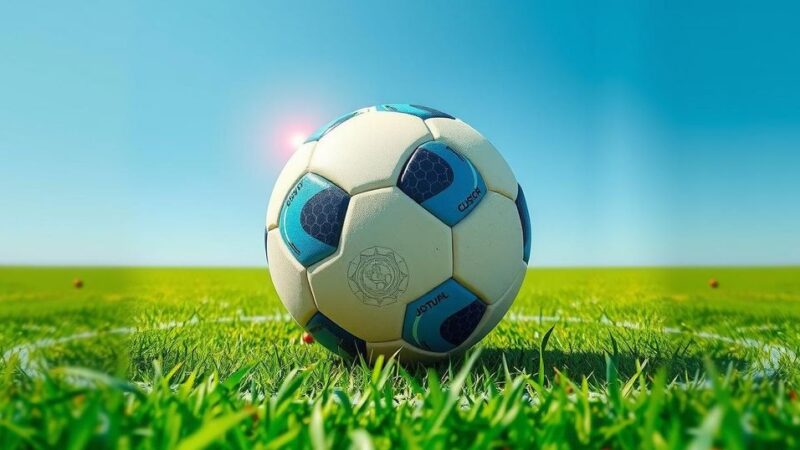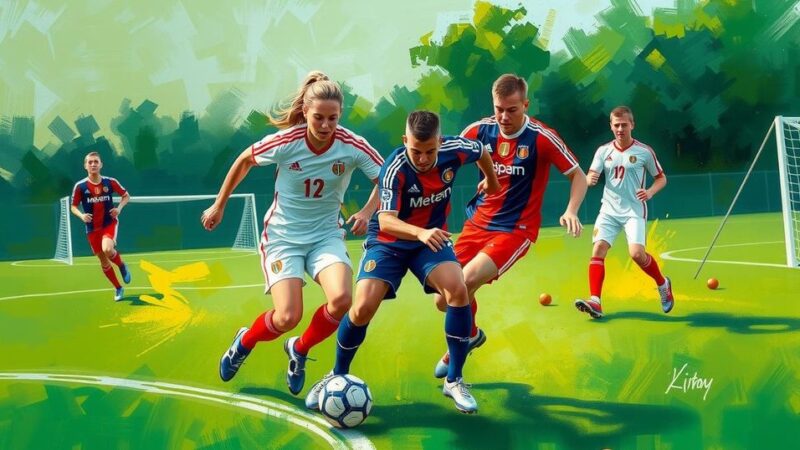The article discusses the significant football rivalry between Manchester City and Liverpool, highlighting the match’s importance for Egyptian fans due to the participation of national stars Omar Marmoush and Mohamed Salah. The viewing excitement is expected to surge, emphasizing football’s role in uniting Egypt and showcasing the nation’s growing talent in the sport. The readers are informed of the duo’s mutual influence and the aspirations for Egyptian football’s future.
The rivalry between Manchester City and Liverpool has significantly intensified in recent seasons, driven by the strategic acumen of coaches Pep Guardiola and Jürgen Klopp. This high-stakes competition has captured global attention, but in Egypt, it takes on new importance as rising star Omar Marmoush faces off against national hero Mohamed Salah.
Omar Marmoush joined Manchester City in January for £59 million, transferring from Eintracht Frankfurt. The Egyptian forward established his reputation in Germany and has made an impression in the Premier League with standout performances, including a hat-trick against Newcastle. Although Marmoush shines amidst a challenging season for City, he remains in Salah’s shadow, who is guiding Liverpool toward another Premier League title.
Football is a major source of pride in Egypt, boasting a population of 114.5 million, many of whom will closely follow the match at the Etihad. Sports journalist Hamed Wagdy notes the excitement in anticipation of this clash: “Everyone is excited to watch the match, especially since it’s a big showdown between the two biggest teams in England.”
Wagdy emphasizes that already substantial viewership will increase due to the match coinciding with the Cairo derby, enhancing the number of Egyptian fans tuning in. He estimates that there could be as many as 10 million viewers for this match, showcasing the passion Egyptians have for football and the brilliance of both Salah and Marmoush.
The popularity of both players highlights a rising trend of Egyptian talents succeeding in international leagues, notably the Premier League. Salah’s status has expanded Liverpool’s fanbase in Egypt during his eight years with the club, and now Marmoush is seen as a potential successor for future football achievement in the nation.
Both players began their careers in Egypt’s domestic league, where Salah played for Al-Mokawloon and Marmoush for Wadi Degla, before transitioning to European football. With 35 caps for Egypt, including many alongside Salah, Marmoush represents hope for future successes. There is considerable optimism that they can achieve a first Africa Cup of Nations title in over a decade and propel the national team to new heights.
Salah is regarded as one of the greatest players in the history of Egyptian and Arab football. Wagdy highlights this, stating, “Salah is considered the greatest Egyptian and Arab player and one of the greatest African players in history.” Marmoush, at 26 and training with a world-class coach, is expected to lead the future of Egyptian football and contribute to breaking Egypt’s long-standing drought in the Africa Cup of Nations.
While the budding rivalry between their clubs captivates audiences, it also allows Egyptians to unite in celebration of their national talents. Regardless of the match’s outcome, the portrayal of Marmoush and Salah as beacons of hope unites the nation in front of their television screens, celebrating the success of both players and their contributions to football.
In conclusion, the upcoming match between Manchester City and Liverpool is not merely a club rivalry but an event of national significance for Egypt. Omar Marmoush and Mohamed Salah represent the pinnacle of Egyptian football talent, inspiring millions while elevating the sport’s profile in their homeland. The expectations from both players reflect a bright future for Egyptian football, uniting the nation through their achievements and promising potential. Regardless of the outcome, the match symbolizes shared pride and collective enthusiasm among Egyptian fans.
Original Source: www.theguardian.com






